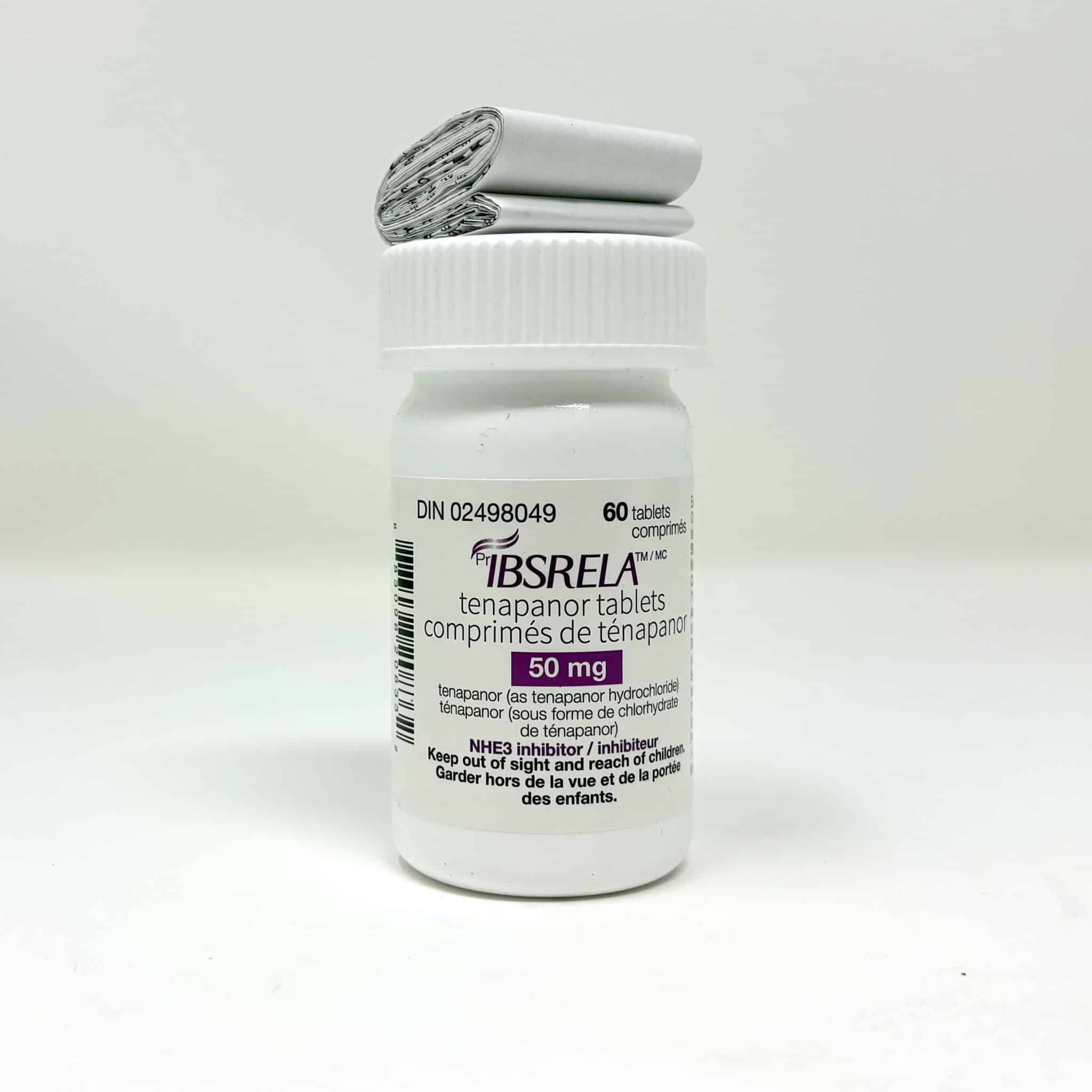Ibsrela and Diet: What to Eat (and Avoid) for IBS with Constipation
Ibsrela and Diet: What to Eat (and Avoid) for IBS with Constipation
- Jason K
For individuals managing Irritable Bowel Syndrome with Constipation (IBS-C), Ibsrela (tenapanor) offers relief by increasing water in the intestines to soften stool and promote bowel movements. While Ibsrela is effective, diet plays a significant role in supporting its benefits and managing IBS symptoms.
Understanding which foods help digestion and which worsen constipation can make a substantial difference in symptom relief. This guide explores the best dietary choices for maximizing Ibsrela’s effectiveness, what foods to avoid, and how hydration, fiber intake, and probiotics can impact gut health.
How Ibsrela Works and Why Diet Matters
Ibsrela works by reducing sodium absorption in the intestines, which increases water retention in the gut. This softens stool and makes bowel movements more regular. Unlike laxatives, Ibsrela targets the root cause of constipation in IBS-C rather than forcing bowel contractions.
While Ibsrela can improve symptoms, certain foods can enhance or hinder its effectiveness. A well-balanced diet can help reduce bloating, ease digestion, and prevent symptom flare-ups.
Best Foods for IBS-C Patients on Ibsrela
High-Fiber Foods That Support Digestion
Soluble fiber is beneficial for softening stool and preventing constipation. These fiber-rich foods can work alongside Ibsrela to promote smoother digestion:
- Oatmeal
- Chia seeds and flaxseeds
- Bananas
- Cooked carrots and sweet potatoes
- Psyllium husk
It is important to increase fiber intake gradually, as a sudden increase can lead to bloating or discomfort.
Hydrating Foods and Fluids
Since Ibsrela draws water into the intestines, staying hydrated is essential to prevent dehydration and support digestion.
- Water (at least eight glasses per day)
- Coconut water for added electrolytes
- Herbal teas such as ginger or peppermint
- Clear broths and soups
Maintaining adequate hydration helps prevent the hardening of stool, which can lead to worsened constipation.
Low-FODMAP Vegetables for Easier Digestion
Certain high-fiber vegetables contain fermentable carbohydrates (FODMAPs) that can worsen bloating and discomfort. Low-FODMAP options are easier to digest and still provide essential nutrients:
- Zucchini
- Spinach and kale
- Carrots
- Cucumber
- Bell peppers
Fermented and Probiotic-Rich Foods
Probiotics may improve gut health and complement the effects of Ibsrela. However, some probiotic sources contain dairy, which can be problematic for individuals with IBS. Lactose-free options are often better tolerated:
- Kimchi and sauerkraut
- Lactose-free kefir
- Plain Greek yogurt (if tolerated)
These foods support gut bacteria balance, which is essential for long-term digestive health.
Foods to Avoid While Taking Ibsrela
High-FODMAP Foods That May Trigger Bloating
Certain carbohydrates found in fruits, vegetables, and legumes ferment in the gut and can lead to bloating, discomfort, and worsened constipation. These foods may not be well tolerated by those with IBS-C:
- Apples and pears
- Onions and garlic
- Legumes, including beans, lentils, and chickpeas
Reducing high-FODMAP foods while taking Ibsrela may help improve symptom relief and reduce unnecessary digestive discomfort.
Processed and Low-Fiber Foods That Can Worsen Constipation
Highly processed foods tend to lack fiber and can slow down digestion, making Ibsrela less effective in relieving constipation. Some of the worst offenders include:
- Fast food and frozen meals
- White bread and refined pasta
- Processed snack foods
Replacing low-fiber processed foods with whole, nutrient-dense options can help improve gut motility and prevent symptoms from worsening.
Dairy Products That May Cause Digestive Issues
While not everyone with IBS is sensitive to dairy, many experience bloating or discomfort when consuming milk-based products. Dairy that contains high levels of lactose may be difficult to digest and should be consumed with caution:
- Milk and heavy cream
- Soft cheeses such as cream cheese and ricotta
- Ice cream
Lactose-free dairy alternatives may be a better option for individuals prone to IBS-C symptoms after consuming dairy.
Balancing Fiber Intake Without Worsening Symptoms
Fiber is essential for healthy digestion, but introducing too much fiber too quickly can lead to bloating and discomfort. To avoid these side effects:
- Increase fiber intake gradually to allow the gut to adjust.
- Start with small portions of soluble fiber, such as half a banana or a tablespoon of chia seeds.
- Ensure adequate hydration to help fiber move smoothly through the digestive tract.
These adjustments can help prevent digestive discomfort while ensuring Ibsrela continues to work effectively.
Hydration and Its Role in Digestion While Taking Ibsrela
Water intake is directly linked to digestion and constipation relief. Since Ibsrela works by increasing water in the intestines, staying adequately hydrated is crucial.
- Drinking eight to ten glasses of water daily supports stool softness.
- Limiting caffeinated beverages, which can dehydrate the body, may help prevent constipation.
- Coconut water and electrolyte-rich drinks may help restore balance, particularly for those prone to dehydration.
Hydration is one of the most overlooked factors in digestive health and should be prioritized while taking Ibsrela.
Buying Ibsrela Online and Cost-Saving Options
Ibsrela can be expensive in the United States, with prices varying depending on insurance coverage and pharmacy pricing. Many Americans are now exploring lower-cost options through licensed Canadian pharmacies.
For individuals looking to buy Ibsrela online at a reduced cost, checking out trusted international prescription services can help reduce the financial burden.
Some cost-saving options include:
- Comparing prices between U.S. and Canadian pharmacies
- Using discount coupons or savings programs
- Purchasing a 90-day supply for better pricing per dose
For those struggling with affording their IBS medications, buying from licensed Canadian pharmacies can be a safe and legal alternative.
Conclusion
Ibsrela is an effective treatment for IBS-C, but diet plays a key role in maximizing its benefits. Incorporating soluble fiber, low-FODMAP vegetables, and probiotic-rich foods can improve digestion while avoiding processed foods, high-FODMAP ingredients, and excessive dairy can help prevent symptom flare-ups.
Staying properly hydrated is essential for maintaining gut motility, and gradually increasing fiber intake can prevent discomfort. For those looking to save money on Ibsrela, exploring safe and reputable online options may provide cost-effective alternatives.
By combining Ibsrela with the right dietary choices, individuals with IBS-C can manage their symptoms more effectively and improve their overall gut health.
Reference:


